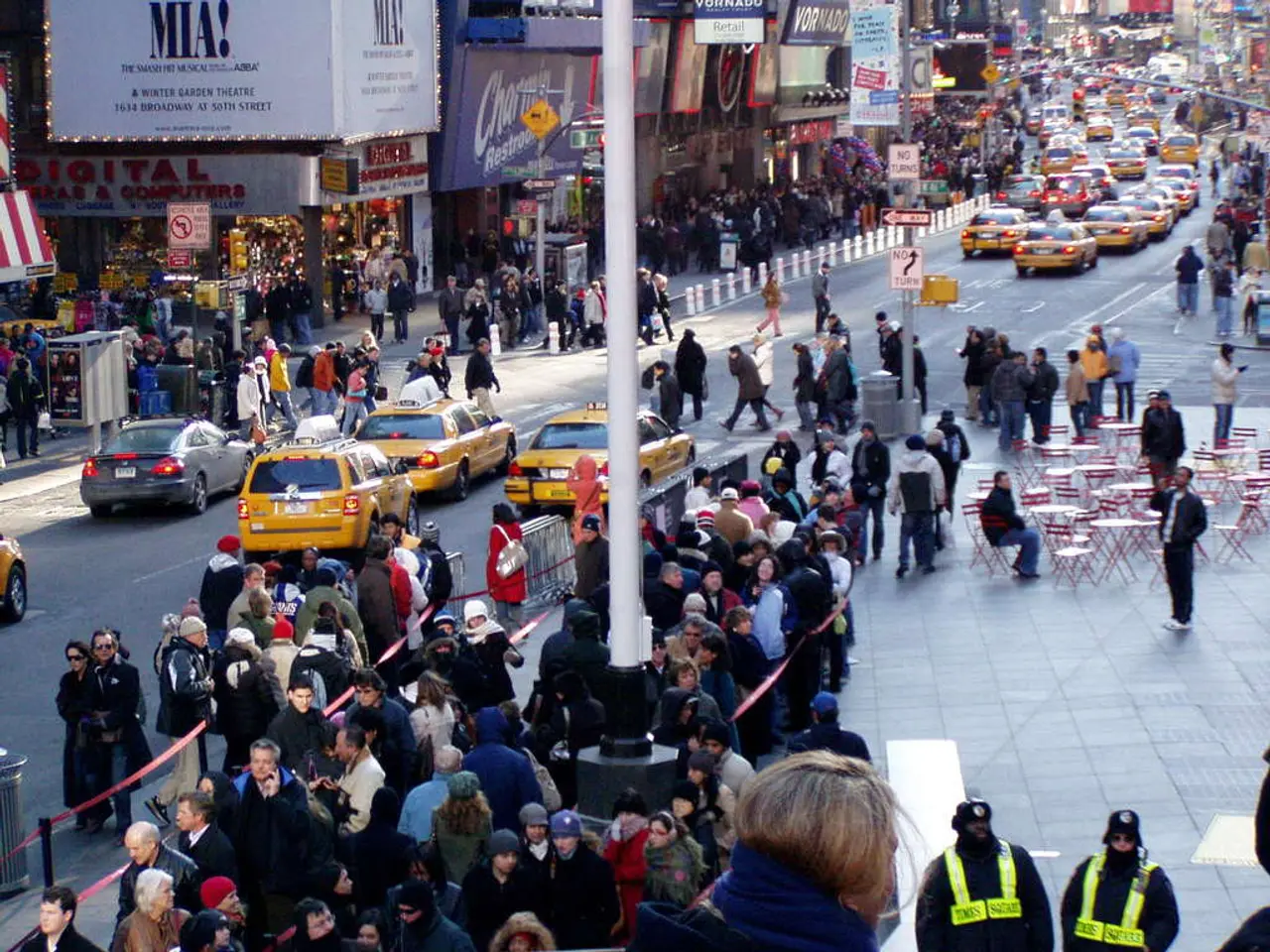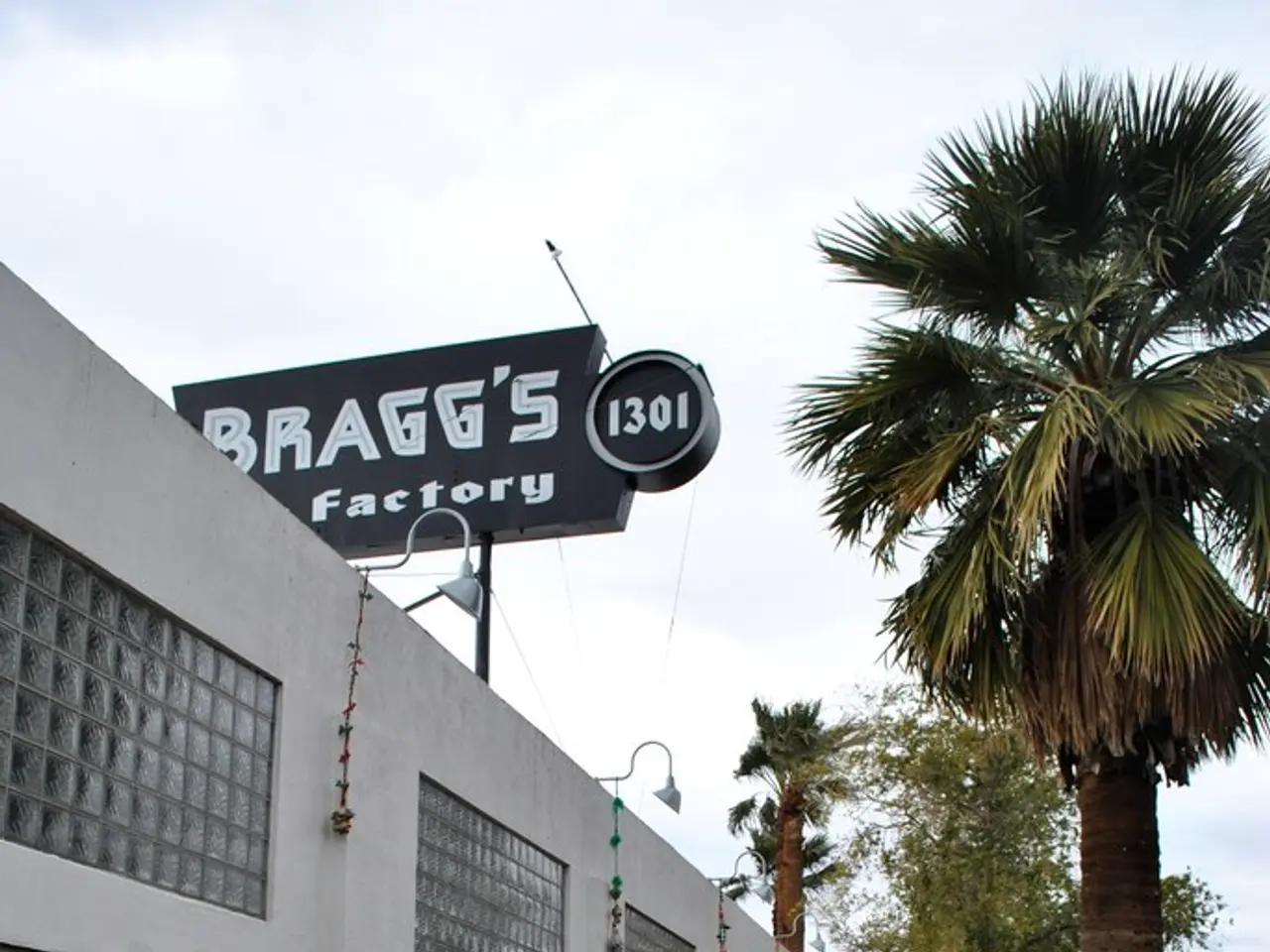Authorities dismantle illicit petroleum facility in Veracruz
In the coastal city of Coatzacoalcos, Veracruz, federal authorities busted a clandestine oil refinery earlier this week. Security Minister Omar García Harfuch shared the news on social media, stating, "We've nabbed over half a million liters of crude and shut down a shady operation that threatened the area's ecosystems."
This illicit refinery, hidden away in Coatzacoalcos, was producing artisanal diesel, naphtha, treated oils, and light fuel sans the necessary permits. It posed an environmental risk and served as a small-scale refinery, equipped with equipment to separate fuels and pipes for transportation.
García Harfuch, along with federal agencies like the Army, Navy, National Guard, and Pemex, executed a search warrant at the illegal establishment. According to the joint statement from the Security Ministry, National Guard, Federal Attorney General's Office, Defensa, SEMAR, and Pemex, seven large capacity mobile tanks and four vertical tanks were recovered from the site. Originally used for industrial waste, the refinery was repurposed for the illegal processing of hydrocarbons.
Additionally, García Harfuch reported the seizure of 1.2 million liters of fuel in the northern state of Nuevo León. Authorities detected an illegal storage property in Allende, Nuevo León, securing 1.2 million liters of hydrocarbons, tanker trucks, and containers. The property posed a risk to the public due to the absence of appropriate safety measures, and no arrests were made.
Crime syndicates like the Jalisco New Generation Cartel and Gulf Cartel are suspected to be involved in fuel theft, dubbed "huachicoleo," in the region. This illicit activity costs Pemex hundreds of millions of dollars each year, compromising the local ecosystem and the legal fuel market [1]. Coatzacoalcos, located on the Gulf of Mexico, is a hub for Mexico's crude oil production [3].
Clandestine oil refineries like the one in Coatzacoalcos can have devastating consequences on local ecosystems by polluting water sources, releasing hazardous chemicals, and causing explosions [2]. Moreover, they contribute to the black market fuel trade that costs Mexico billions of dollars annually, financially crippling the government and flooding the market with substandard products [4]. It's essential for authorities to continue cracking down on these illegal operations to safeguard the environment and secure the fuel market in Mexico.
References:
[1] Associated Press. (2021, March 3). Millions of dollars worth of fuel stolen in Mexico. Retrieved from https://www.msn.com/en-us/news/world/millions-of-dollars-worth-of-fuel-stolen-in-mexico/ar-BB1DZ55N
[2] Gillen, J. B. (2020, February 23). Tlahuelilpan blast in Mexico leaves at least 130 dead. Retrieved from https://www.usatoday.com/story/news/world/2020/02/20/mexico-gas-line-explosion-tlahuelilpan-leaves-at-least-123-dead/4834380002/
[3] Leyva, A. (2021, March 4). Authorities reduce fuel theft in Mexico, revenue up 71%. Retrieved from https://www.reuters.com/business/energy/mexico-reduces-fuel-theft-revenue-up-71-2021-03-03/
[4] Sanchez, J. (2019, April 24). Mexico's Pemex to spend $1 billion on fuel-theft prevention. Retrieved from https://www.reuters.com/article/us-mexico-pemex-theft/mexicos-pemex-to-spend-1-billion-on-fuel-theft-prevention-idUSKCN1SV3B6
- The illegal refinery in Coatzacoalcos was capable of producing several oil products, such as diesel, naphtha, treated oils, and light fuel, despite lacking the necessary permits.
- The seizure of 1.2 million liters of fuel in the northern state of Nuevo León was attributed to a clandestine storage property that was also discovered.
- Despite the crackdown on illicit refineries in the region, crime syndicates like the Jalisco New Generation Cartel and Gulf Cartel are still suspected to be involved in the illegal processing of hydrocarbons.
- The illegal activity of fuel theft, known as "huachicoleo," poses a significant risk to the local ecosystem, costs Pemex millions of dollars each year, disrupts the legal fuel market, and compromises public safety.




